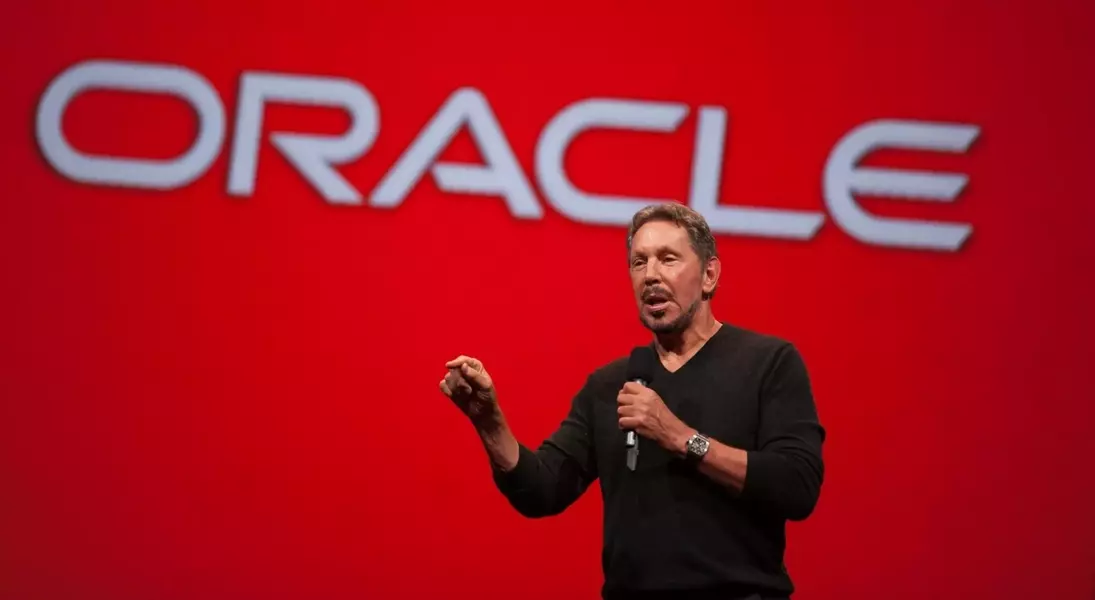In a recent address at the World Government Summit in Dubai, billionaire Larry Ellison, founder of Oracle, unveiled an ambitious vision for a future where governments worldwide consolidate their data into unified databases to enhance AI capabilities. This proposition, while promising significant advancements in public services and efficiency, has sparked considerable debate about privacy, surveillance, and corporate influence on governance.
A Bold New Era of Technocratic Governance Awaits
The Promise of Unified Data Systems
Ellison envisions a world where fragmented datasets from various sectors—health, agriculture, infrastructure, procurement, and borders—are integrated into a single, secure database accessible by AI models. This consolidation, he argues, would revolutionize public services, particularly healthcare, leading to cost reductions and improved outcomes. Countries with robust population data, such as the UK and the UAE, could significantly benefit from this approach. By centralizing information, governments can streamline operations, optimize resource allocation, and deliver more efficient services to their citizens.Moreover, the integration of diverse datasets allows for a comprehensive understanding of societal trends and challenges. For instance, health data combined with environmental metrics can lead to better-informed policies addressing public health crises. The potential for predictive analytics in this context is immense, enabling proactive measures that can mitigate risks before they escalate. However, the feasibility of implementing such a system on a global scale raises questions about data security, privacy concerns, and the potential for misuse.The Rise of Surveillance and Control
At an Oracle event last September, Ellison elaborated on his vision of an AI-powered surveillance state. He foresees a future where robotics and automated systems monitor entire populations, ensuring compliance and maintaining order. Police officers, for example, could be supervised by AI systems that detect and report anomalies in real-time. Citizens, aware of constant monitoring, would likely adhere to societal norms more strictly, theoretically reducing crime rates and enhancing public safety.However, this scenario also evokes dystopian imagery reminiscent of science fiction narratives like "Westworld." The prospect of ubiquitous surveillance raises ethical concerns about personal freedom and autonomy. Critics argue that excessive monitoring could stifle individual expression and creativity, leading to a society where conformity is paramount. The balance between security and liberty becomes a critical consideration in evaluating the implications of Ellison's vision.Technological Advancements and Societal Impact
Ellison's predictions extend beyond surveillance to encompass broader applications of AI and robotics in governance. He envisions scenarios where autonomous drones replace human police officers in high-speed chases, showcasing the potential for technology to enhance law enforcement without risking human lives. While this may seem practical, it also underscores the growing role of machines in decision-making processes traditionally handled by humans.The integration of AI into governance could lead to unprecedented levels of control over populations. In theory, AI systems could predict and prevent crimes before they occur, but this also introduces complex legal and moral dilemmas. Who bears responsibility when an AI system makes a mistake? How do we ensure that these systems are transparent and accountable? These questions highlight the need for robust regulatory frameworks to govern the deployment of AI in public administration.Corporate Influence and Public Policy
Ellison's advocacy for centralized data and enhanced AI capabilities aligns closely with Oracle's business interests. As the company seeks to expand its AI offerings, Ellison's proposals could position Oracle as a key player in shaping the future of global governance. The Stargate project, involving Oracle alongside other tech giants like OpenAI, Microsoft, SoftBank, and NVIDIA, aims to build AI data centers across the U.S., underscoring the industry's commitment to advancing AI infrastructure.The involvement of major corporations in public policy decisions raises concerns about the concentration of power and influence. Critics argue that allowing private companies to dictate the terms of AI development could compromise democratic principles and prioritize profit over public welfare. Ensuring that technological advancements serve the common good requires careful oversight and collaboration between the private sector, governments, and civil society.Navigating the Path Forward
As AI continues to evolve, the choices made today will shape the societies of tomorrow. Ellison's vision presents both opportunities and challenges. On one hand, the integration of AI into governance offers the potential for more efficient and effective public services. On the other hand, it necessitates a thorough examination of the ethical, legal, and social implications involved.Finding a balance between innovation and safeguarding fundamental rights is crucial. Policymakers must engage in thoughtful dialogue with stakeholders to develop frameworks that harness the benefits of AI while mitigating risks. Ultimately, the future of AI-driven governance depends on how well we navigate these complexities, ensuring that technology serves as a tool for progress rather than a means of control.
